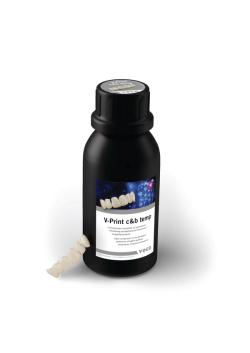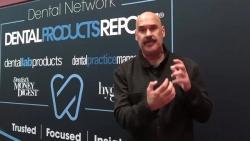- About Us
- Advertise
- Editorial
- Contact Us
- Terms and Conditions
- Privacy Policy
- Do Not Sell My Personal Information
© 2025 MJH Life Sciences™ and Dental Products Report. All rights reserved.
4 easy ways to get into cosmetic dentistry
There's no better time than the present for general dentists to offer cosmetic treatment options.
More than ever before, patients are seeking treatments focused on cosmetics, whether they’re looking to just whiten their teeth or do more substantial treatment like veneers. That’s why now is the perfect time for general dentists to get involved in cosmetic dentistry.
Read more: Why cosmetic dentistry matters to every practice
If you’re wondering where to start if you’re a general dentist looking to expand your services and offer more cosmetic treatment options to patients, then here are four simple ways to get into cosmetic dentistry.
Click through the slides to find out four ways to get into cosmetic dentistry.
1. Get involved with the AACD
One obstacle to providing cosmetic services is that a lot of the treatments depend on a solid foundation of knowledge - one that isn’t offered through dental school alone. Therefore, many dentists agree that getting involved in the American Academy of Cosmetic Dentistry is the most essential first step when it comes to introducing or expanding cosmetic procedures in the dental practice.
Start by attending the annual session and learning more about the organization and its training programs. You’ll have the opportunity to see and learn from leading cosmetic dentists who know how to teach techniques that you’ll use in everyday practice.
More from the author: 6 cosmetic dentistry procedures every practice should offer
“It’s a really good place to learn, be inspired and network with like-minded individuals,” says Betsy Bakeman, DDS, FAACD.
“You’ll learn more during the session than you’ll ever learn in school,” says Tanya L. DeSanto, DDS, FICD. “You have all the top-notch speakers and all the leaders in the profession from all over the world teaching cases. You can do hands-on training and take that as the impetus to learn more, and you can follow-up with courses from these instructors that you’ve learned from.”
Dr. DeSanto says that the seeds for continuing education are planted at the AACD scientific session.
“The academy can teach you every single thing you want to know,” she says. “If you have the drive and the ambition, you can seek it out.”
2. Start small with direct resin bonding
It’s likely that the AACD session will inspire dentists who attend. But it’s also important to remember to walk before you run, says Fred H. Peck, DDS, AAACD. The best way to do that is by integrating direct resin bonding into your skillset.
“You start with fixing small chips on teeth so that you can’t tell that anything was done to the tooth,” Dr. Peck says. “Basically, it’s an invisible restoration. Slowly increase the number of teeth and learn how to do it effectively.”
Trending article: 6 stories that prove the dental industry is the weirdest
With direct resin bonding, you can provide many solutions, says John Rowe, DDS, AAACD. You can change the shape or shade of teeth, modify a single tooth or reconstruct an entire smile.
“The uses for composite are purely limited by the operator’s knowledge and skill,” he says.
Another benefit is that it’s an inexpensive way to refine your skills.
“There are no lab fees, so it’s just the cost of the composite and what you’re able to do with it,” Dr. Peck adds. “You can move into more expensive and extensive procedures after that, but that’s a great starting point.”
3. Don’t focus purely on the smile zone
Dr. Bakeman says that dentists can get patients excited about cosmetic options by making things look more natural anywhere in the oral cavity, not just the smile zone.
Related article: The top 5 ways cosmetic dentistry can benefit your practice
“Patients can be thrilled with even simple restorations - it doesn’t have to be a whole smile makeover to make a patient happy,” she says. “With both anterior and posterior restorations, we can provide strong, all-ceramic restorations that blend naturally and beautifully. The results can be very pleasing for patients and much appreciated. You can hand the patient the mirror, even if it’s a posterior tooth, and say, ‘Here’s your new crown,’ and feel the pride when they respond, ‘Wow, which tooth is it?’
Take the time to deliver exceptional cosmetic results, even for those less noticeable restorations. Patients appreciate it and it becomes a practice builder as a result.
4. Partner with an AACD-accredited lab tech
A major theme so far is to take even the simplest cases seriously. Dentists can do that by having a solid foundation of knowledge, accessing the appropriate resources, and treating every case as if it were the only one by which future patients could judge you. When the work gets more complex, the relationship you have with your dental technician will be critical to your success. Dr. Peck recommends building that relationship with the right person from the very beginning.
“When the lab is involved, it’s about partnering with a AACD-accredited lab technician who can help guide the process,” he says.
More from the author: The 5 biggest benefits of digital impressions
It’s easy to offer whitening, composites and porcelain and call yourself a cosmetic dentist. But Dr. Peck says that there is a lot to learn if you want to do it correctly. It requires attending hands-on courses, learning the theory and science behind the materials and techniques, and integrating that knowledge and skill slowly into the practice as you move forward.
For more resources on how to get involved in cosmetic dentistry, consider attending the AACD 2018 Scientific Session by visiting aacdconference.com.



